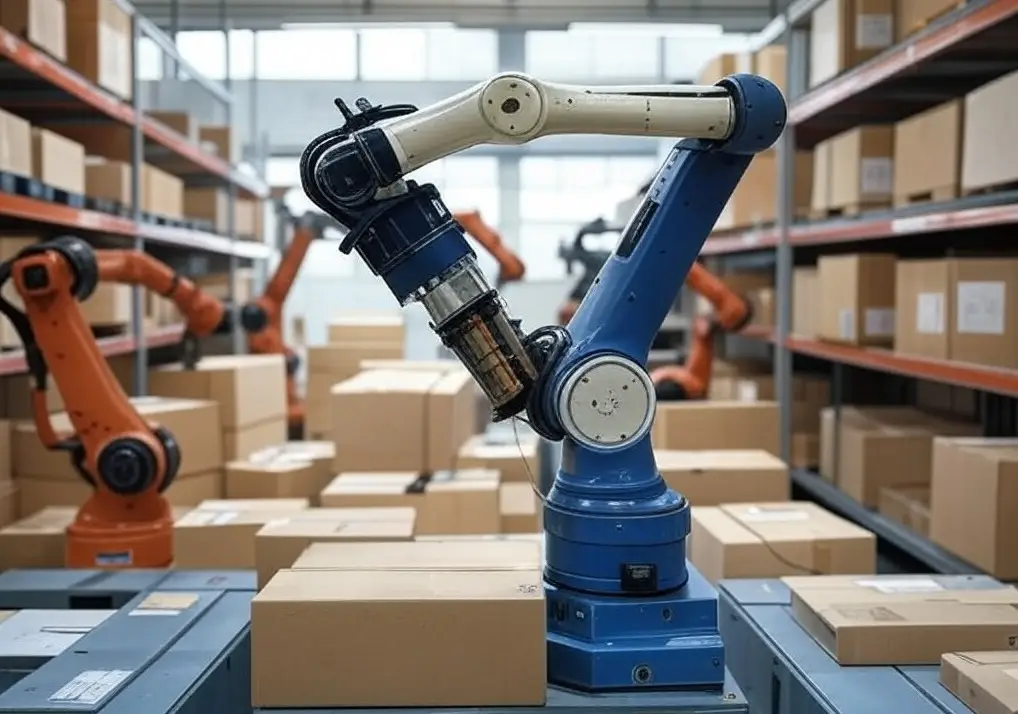AI Use Cases Transforming the Pharmaceutical Industry

The Business Value of AI in Biotechnology and Pharmaceuticals
AI is proving to be a game-changer in the biotechnology and pharmaceutical sectors, offering a myriad of benefits that translate into tangible business value:
- Enhanced drug discovery processes through predictive analytics and machine learning algorithms.
- Improved patient care and personalized medicine by analyzing vast amounts of patient data to tailor treatments.
- Streamlined clinical trials and accelerated research and development timelines.
- Optimized supply chain management and inventory forecasting for pharmaceutical companies.
Driving Innovation with AI
AI is fostering a culture of innovation in biotechnology and pharmaceuticals, enabling companies to push the boundaries of what is possible in research, development, and patient care:
- Facilitating the identification of novel drug targets and biomarkers for disease diagnosis and treatment.
- Empowering researchers to analyze complex biological data sets with speed and precision.
- Enabling the development of AI-powered diagnostic tools for early disease detection.
The Role of IoT and Cloud in AI Transformation
IoT and cloud technologies play a pivotal role in enabling the seamless integration and deployment of AI solutions in the biotechnology and pharmaceutical industries:
- IoT devices collect real-time data from various sources, such as wearable health trackers and medical devices, to fuel AI algorithms.
- Cloud computing provides the scalable infrastructure needed to process and analyze massive datasets in a cost-effective manner.
- Together, IoT and cloud technologies create a connected ecosystem that supports AI-driven decision-making and innovation.
AI Use Cases in Pharmaceutical & Biotech
1. AI-Powered Drug Discovery
Traditional drug discovery takes 10-15 years and costs billions. AI accelerates this process by:
– Analyzing vast datasets to identify promising compounds faster.
– Using predictive modeling to enhance drug success rates.
– Reducing R&D costs by automating early-stage drug discovery.
Business Impact: Faster time-to-market, reduced development costs, and increased profitability.
2. AI in Clinical Trials
Clinical trials are costly and time-consuming. AI optimizes this process by:
– Identifying suitable candidates based on genetic and medical history.
– Monitoring patients in real-time using IoT wearables and AI analytics.
– Predicting trial outcomes to refine study protocols.
Business Impact: Reduced trial costs, faster drug approvals, and improved patient safety.
3. IoT & AI-Driven Supply Chain Optimization

Pharmaceutical supply chains must meet strict regulations. AI enhances supply chain operations by:
– Optimizing inventory management with AI-driven demand forecasting.
– Ensuring regulatory compliance by tracking drug storage conditions in real-time.
– Detecting fraud and preventing counterfeiting through AI-driven monitoring.
Business Impact: Lower operational costs, increased compliance, and improved logistics efficiency.
4. Personalized Medicine with AI
AI is making precision medicine a reality by:
– Analyzing genomic data to tailor treatments to individual patients.
– Predicting patient responses to different therapies.
– Refining dosage recommendations for better treatment outcomes.
Business Impact: Higher treatment success rates, reduced adverse effects, and improved patient trust.
5. AI-Powered Regulatory Compliance & Drug Safety
Pharmaceutical companies operate in a heavily regulated environment. AI supports compliance by:
– Automating regulatory documentation to ensure faster approvals.
– Detecting adverse drug reactions with real-time NLP (Natural Language Processing).
– Enhancing drug safety monitoring through AI-driven alerts.
Business Impact: Reduced legal risks, lower compliance costs, and enhanced brand reputation.
The Future of AI in Biotech & Pharma
As AI adoption accelerates, companies that embrace data-driven decision-making and automation will lead the industry. From reducing R&D costs to improving patient care, AI is unlocking unprecedented opportunities.
Pharmaceutical and biotech firms must act now to integrate AI into their operations and gain a competitive advantage in this rapidly evolving landscape.